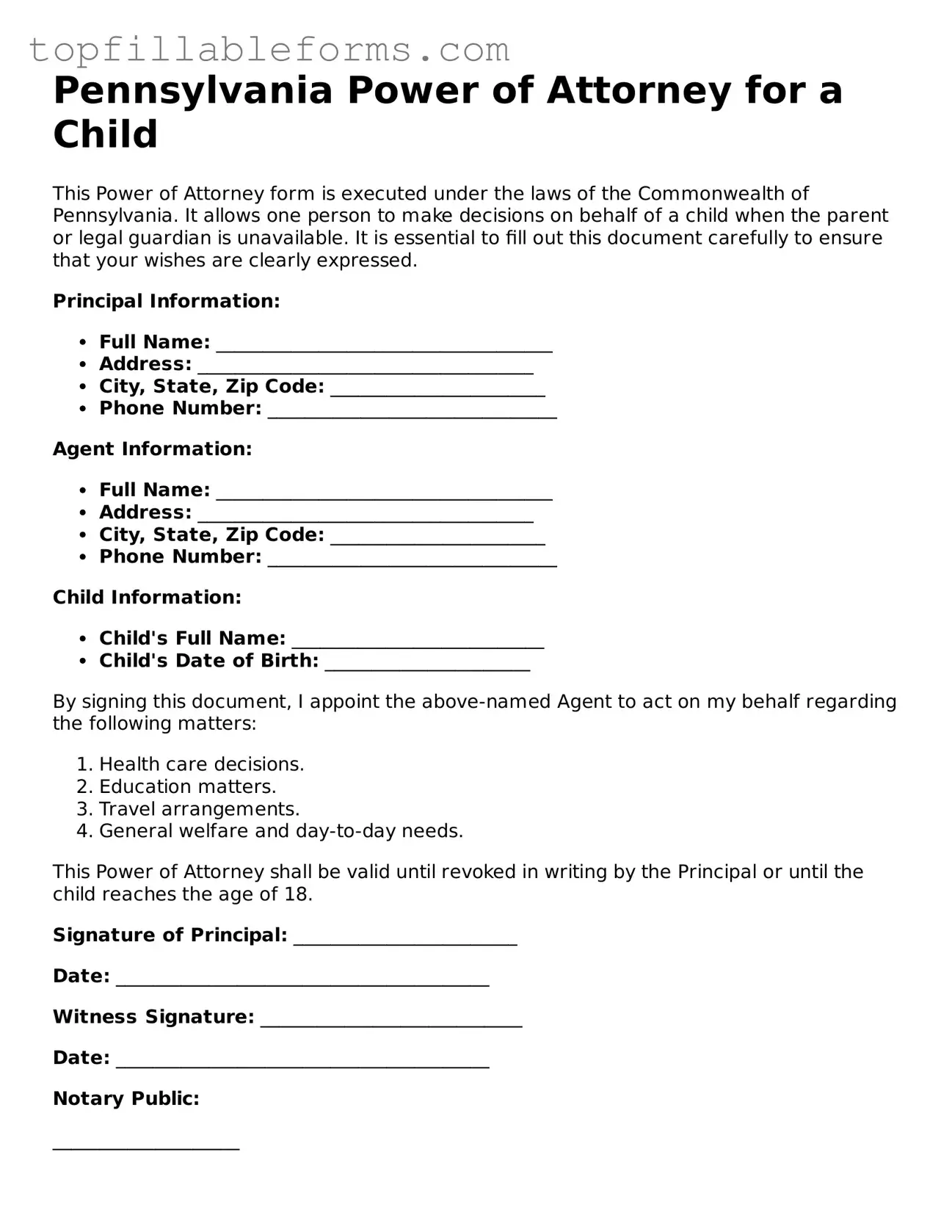Attorney-Verified Power of Attorney for a Child Template for Pennsylvania
The Pennsylvania Power of Attorney for a Child form is a legal document that allows a parent or guardian to designate another individual to make decisions on behalf of their child. This form is particularly useful when parents are temporarily unable to care for their child due to travel, illness, or other circumstances. By completing this document, parents can ensure that their child's needs are met in their absence.
Open Power of Attorney for a Child Editor Here

Attorney-Verified Power of Attorney for a Child Template for Pennsylvania
Open Power of Attorney for a Child Editor Here
Finish the form now and be done
Finish your Power of Attorney for a Child online by editing, saving, and downloading fast.
Open Power of Attorney for a Child Editor Here
or
▼ PDF File
